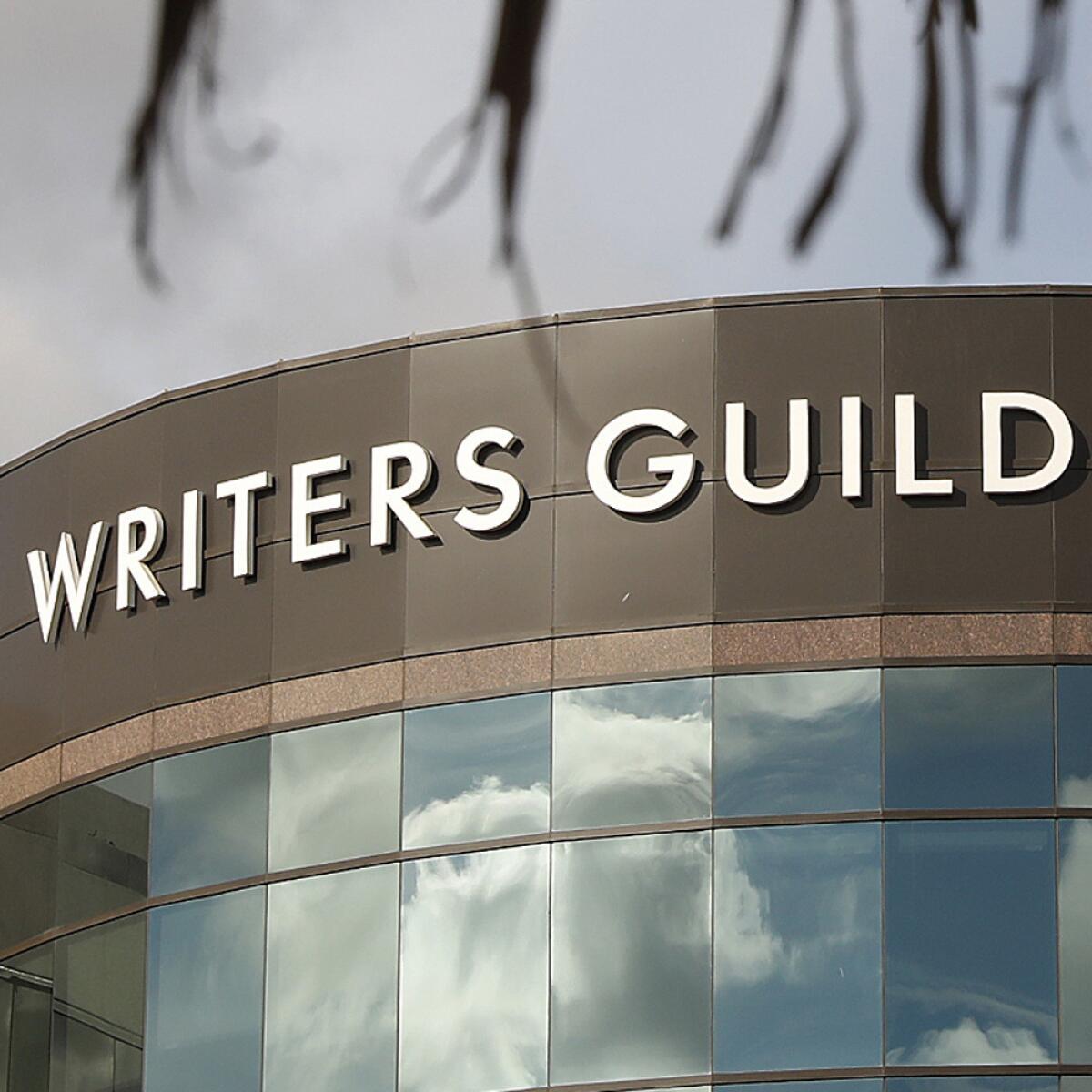WGA reaches deal with Gersh, gaining momentum in battle against talent agencies

- Share via
The Gersh Agency said Friday it had reached a deal with the Writers Guild of America, becoming the sixth talent agency to break ranks with the Assn. of Talent Agents.
The ATA and the WGA have been in a months-long dispute over a new code of conduct, disagreeing about long-standing agency practices such as collecting fees for packaging talent and large talent agencies involved with affiliated production companies, which the union believes create conflicts of interests for talent agencies.
Rather than work directly with trade group ATA, the WGA has negotiated individual agreements with more than 80 small and midtier talent agencies. These agreements aim to end packaging fees, an amount of money agencies earn from studios for pulling together talent for projects. Some agencies also have agreed to not engage in affiliated productions.
Agencies have said that they can manage any conflicts caused by affiliated productions and that packaging benefits writers because they do not have to pay a commission fee.
”Writers are vital to our industry, and Gersh has a long and proud history representing them,” said David and Bob Gersh, the talent agency’s copresidents, in a statement Friday. “We are deeply committed to our writers and their interests, and appreciate their patience. We enthusiastically look forward to resuming our work on their behalf.”
Gersh, which has headquarters in Beverly Hills and New York, declined to disclose the terms of the deal. The talent agency employs 250 people and says it is the first full-service agency to reach an agreement with the WGA.
Talent agencies are under growing pressure to raise capital to finance growth at time of rapid changes in the media industry. The rise of streaming and expected decline of TV packaging, combined with the effects of a longstanding boycott by Writers Guild of America, have put the squeeze on talent agencies, some of which have laid off workers.
Talent agencies have been facing growing pressure to adapt to a changing media industry. The rise of streaming and the expected decline of TV packaging, combined with the effects of the long-standing WGA dispute, have squeezed talent agencies, some of which have laid off workers and cut back on overtime pay for assistants.
Writers who are part of the WGA have been instructed by their union not to work with agencies that do not have existing agreements with the union. Agencies have financially benefited from their writer clients through commissions and packaging fees.
So far, none of the biggest talent agencies have signed a deal with the WGA, and they have continued to collect packaging fees through TV shows based on popular podcasts, books or English-language adaptations of foreign-language programs.
After years of low wages and abuse, Hollywood assistants are in open revolt over their treatment.
The ATA said in a statement that writers should be free to choose which agencies they want to work with.
“There is no reason for WGA to continue to restrict the freedom of writers,” the ATA said. “Writers should be able to decide which issues are most important to them and then freely decide which agent to hire.”
The WGA did not immediately respond to a request for comment.
More to Read
Inside the business of entertainment
The Wide Shot brings you news, analysis and insights on everything from streaming wars to production — and what it all means for the future.
You may occasionally receive promotional content from the Los Angeles Times.













